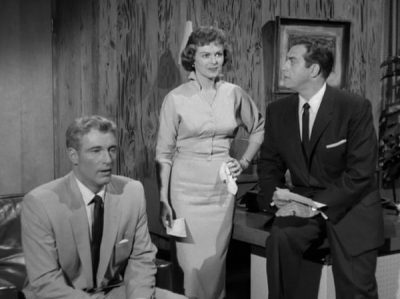
Foreclosure: Banks Too Big to Fail, Too Big to Obey the Law
Foreclosure: Banks Too Big to Fail, Too Big to Obey the Law
A well-organized gang blatantly violates the law for the sole purpose of lining their pockets. What? Are the Sopranos back in business? They may not use terms like “vig” or “nut”, but the banks are foreclosing as zealously as loan sharks. And they’re throwing innocent tenants out of their houses in the process.
During the last few weeks came revelations that banks have been foreclosing on properties that they may not even own!
None of this comes as any surprise to tenants and tenants’ rights organizations who have been complaining, since the meltdown, about banks’ illegal practices, including tenant evictions.
In May 2009, Congress passed the Protecting Tenants at Foreclosure Act which required, at minimum, a ninety-day notice to vacate for tenants without a term lease. Banks have been routinely violating the Federal law since it passed.
Even in San Francisco, with just cause eviction protection (foreclosure is not a just cause), we defended tenants who had already provided the bank (Wells Fargo) with copies of their leases! The bank’s attorneys filed an eviction anyway only naming the owner who didn’t live there (they had been informed of that too), but still seeking to remove the tenants from all of the units.
In May 2010, Tenants Together released its 2010 Report: California Renters in the Foreclosure Crisis. In late June, California Attorney General, Jerry Brown, announced that he would investigate whether tenants rights are violated in foreclosures. This month, the Governator signed Senate Bill 1149 which will help tenants who defend improper bank evictions maintain their credit ratings and require banks to inform tenants of their rights with an eviction notice.
Will these new requirements help? Maybe, but if San Francisco’s law requiring landlords to notify tenants of their rights upon placing a building for sale is any indication, the answer is: Not much. Most of the banks’ soldiers in the field, real estate agents and brokers, can’t read at all, let alone read and understand the law. And they don’t give a shit. If their bosses can act with impunity, why can’t they? Think back to why we got here in the first place.
The only real legal solution to this mess is to pass a statewide just cause eviction law. Even Tony Soprano’s home state, New Jersey, allows eviction for 16 just causes and foreclosure is not one of them.
What can you do if your building is sold in foreclosure?
Occasionally tenants will receive a notice of default meant for the owner. If you do, you have an advantage because you can begin to check public records to see if the there will be a foreclosure auction.
When you know the sale is final, stop paying rent to the owner. Remember the owner has been collecting your rent all the while he hasn’t been paying his mortgage. He needs the money and he will lie about the foreclosure to keep collecting your rent as long as he can. I’ve seen several cases in which the owner still wanted to collect rent in exchange for writing up new leases. This may sound attractive, but if a bank can prove you negotiated a sweetheart lease in anticipation of foreclosure, you could lose rights you may have to stay. Besides, it’s fraud.
Don’t spend the rent you withheld. After foreclosure, banks don’t often inform tenants how and where to pay rent, even if tenants ask. After a few months, they simply serve a three-day notice to pay or quit. If you don’t have the money to pay them you can be legally evicted.
Don’t communicate with the “representative of the bank” without proper notice. Often the first inkling you’ll have that the property is bank-owned is when you see a “representative” skulking around the building. He wants to ask you questions about your tenancy. He’s a real estate thug. He will want to talk about a “cash for keys” program and use veiled threats that you could be evicted if you don’t go along. Get his identification and as much information as you can about him and his employer. You can give him a copy of your lease if he will sign a receipt. You can also mention you know your rights as a tenant. Then politely inform him that you will call the cops if he ever shows his face again without proper notice pursuant to the law. In California it’s Civil Code section 1954.
Gather information. Try to find out who you can contact at the bank. It’s usually impossible because, like all experienced con artists, banks don’t answer the phone. Try to find out which attorneys represent the bank. If you happen to be dealing with a representative and ask him where to pay the rent, he might reply vaguely, “Oh don’t worry about that, the lawyers will send you something.” That’s the time to ask, “Who are the lawyers?” You need to be ready if you receive a notice to quit.
If you receive an unlawful notice to quit, don’t panic. If you live a a jurisdiction like San Francisco or Santa Monica that has a rent ordinance and eviction only for just cause, write a letter to the attorneys on the notice and point that out. Also tell them that if they proceed with an eviction you will file a complaint against them at the State Bar.
If you have a lease and you don’t live in an unenlightened city, send the lawyers a copy and tell them you have the right to stay until the lease expires under Federal law or 90 days whichever is longer. Once again, if they try to evict you illegally you will file a complaint with the State Bar.
Always communicate in writing. When I say “tell” I really mean write a letter.
Report abusive real estate agents to the local board or the California Department of Real Estate. When their licenses may be on the line, sometimes realtors will back off.
You get your security deposit back. Just because the bank did not collect the security deposit from the owner does not absolve it of its legal obligation to refund your security deposit in California. Civil Code section 1950.5(j) is clear that the landlord’s successor in interest is liable for your security if a transfer of the deposit has not be made to the new owner according to Section 1950.5 (h). In a foreclosure scenario that transfer isn’t made because the old owner defaulted.
The foreclosure mess is far from over. It is time for Just Cause Eviction to be enacted statewide. The best thing you can do is to support Tenants Together with your money or your time.








 This is a dance you probably shouldn't try to do by yourself. Almost all tenants need a lawyer to lead. You likely have a better chance buying a house than you do prevailing in an unlawful detainer by defending yourself.
This is a dance you probably shouldn't try to do by yourself. Almost all tenants need a lawyer to lead. You likely have a better chance buying a house than you do prevailing in an unlawful detainer by defending yourself.